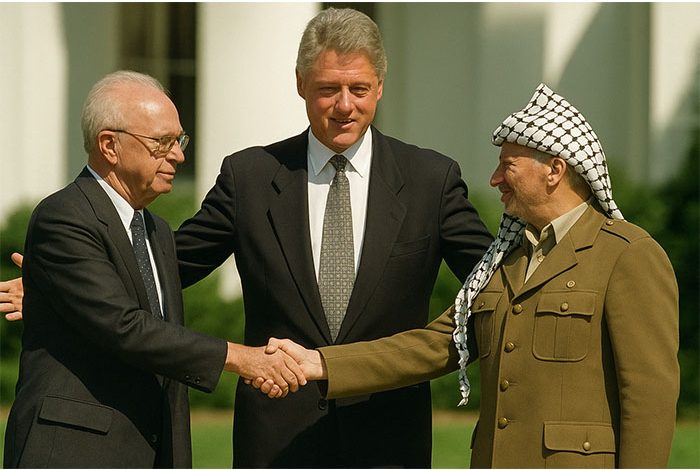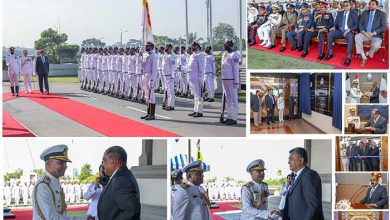History in a Handshake: When Peace Found Its Moment

On a bright September morning in 1993, the South Lawn of the White House became a stage for one of the most symbolic gestures in modern history. Beneath the soft glow of chrysanthemums and the call of robins, two men—Yitzhak Rabin, Prime Minister of Israel, and Yasser Arafat, Chairman of the Palestine Liberation Organization—stood face to face. Between them stood U.S. President Bill Clinton, arms gently outstretched, bridging decades of enmity with a single, expectant gesture.
What followed was not merely a handshake. It was history trembling into hope.
For nearly half a century, the world had watched a bitter narrative unfold in the Middle East—a story of borders drawn in blood and cities divided by faith and fear. Yet on that day, before an audience of diplomats, journalists, and world leaders, the unthinkable happened: two sworn adversaries reached across the chasm of time and conflict, their hands meeting in a brief, hesitant clasp that seemed to hold the weight of generations.
It was a moment that transcended politics and geography—a gesture that echoed across continents. The Declaration of Principles signed that morning would form the legal basis for the Oslo Accords, but it was that single clasp—awkward, uncertain, yet profoundly human—that became the emblem of possibility.
President Clinton’s quiet composure and the symbolic choreography of the moment turned diplomacy into something visual, emotional, and deeply human. Even the unease on Rabin’s face and the tentative smile on Arafat’s could not diminish the significance of the act. For a few minutes, the world saw not soldiers or statesmen, but men daring to trust, if only briefly.
The world would later test that fragile promise. Peace would waver, and tragedy would strike again. Yet the image of that handshake endures—a reminder that reconciliation is never perfect, but it begins when courage outweighs bitterness.
Three decades later, its message remains clear. Peace is not born of documents and signatures alone, but of human gestures—simple, sincere, and brave enough to defy history.
In the end, history is not written by those who win wars, but by those who dare to end them.






